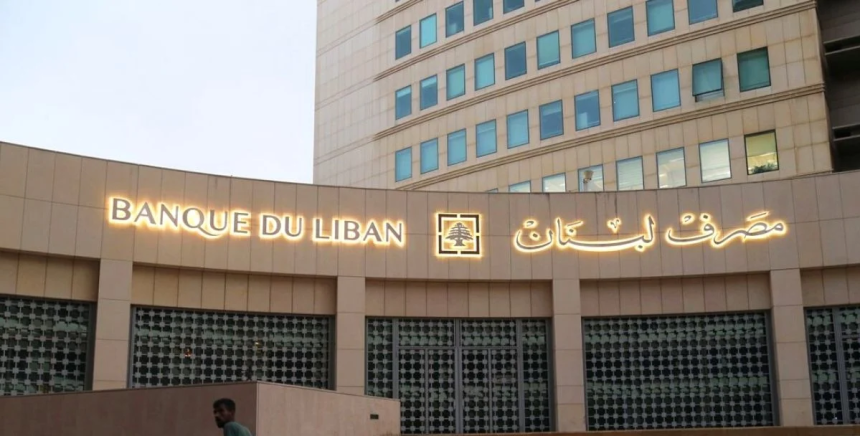Lebanese banks owe more than $100 billion denominated in foreign currencies to their depositors, which amounts to 5 times the expected GDP. Most of those funds were parked at the public sector, mainly as deposits at the central bank and to the lesser extend in Eurobonds issued by the Lebanese government. Both the government and central bank are unable to reimburse banks in the hard currency and the size of losses was estimated to be somewhere around $80 billion.
In June, the caretaker Deputy Prime Minister Saade Chami, in charge of the government recovery plan and the negotiations with the IMF, declared that the losses should be absorbed by the banks first. He also responded to the banks’ counterproposal of creating a sovereign fund and clarified that he was against incorporating the revenues of the sovereign fund—if created—into the reimbursement scheme.
On June 21, the Association of Banks in Lebanon (ABL) sent a letter to the IMF arguing against Chami’s rescue plan that served as a base for the staff-level agreement reached between the IMF and the Lebanese government. The letter opposed slashing banks’ foreign currency deposits held at the central bank and called it an expropriation that would result in widespread damage to universities, hospitals, factories, white-collar and blue-collar workers, social security, social welfare and the general output and growth. Some Lebanese banks, such as Bank Audi and Al-Mawarid Bank, distanced themselves from ABL’s letter.
LIMS explained that the final deal with the IMF will open the door for bank restructuring and many banks will see their capital impaired and end up disappearing. Those banks have an interest in fighting against the IMF deal. On the other hand, some banks expect to remain in business after restructuring and they will consequently end up with a greater market share. Those banks prefer to remain in line with the government plan and to maintain cordial relations with the central bank. Given this split, the ABL is unable to represent both views simultaneously. LIMS added that banks were able to repeal the previous government’s restructuring plan through their influence on Parliament’s Finance and Budget Committee. The divide among banks will make it easier for the current government to get the reforms approved by the parliament. Banks that have the least amount of “old dollar” liabilities should be the ones that would survive the restructuring scheme. Therefore, banks are currently refusing to allow their clients to deposit “old dollars” checks in their account.
LIMS showed that the suggested sovereign fund would not change much in the equation. First, the central bank’s external assets would be excluded from the fund, given the independence of the central bank. Second, government-owned assets are usually composed of real estate and monopolies and are equally mismanaged, leading to financial losses; the losses of the government-owned electricity monopoly being emblematic in this respect. The fund will keep those assets under government management, maintaining the same political influence, nepotism, and clientelism. LIMS instead recommended opening the monopolized sectors to competition, namely electricity, telecom, internet, airlines, airports, tobacco, etc. Competition will attract capital investment into those sectors and provide a better quality of services to businesses and the population. New private companies established in those key sectors would drive and overall economic recovery and stimulate government revenues.
- Lebanese Sovereign Fund…. Pros And Cons, June 30,2022: Lebanon On, Article AR
- Implications Of The Dispute Between The Banks And Association of Banks, June 27,2022: VDL, Radio Interview AR
- How Will Large Deposits Be Written Off ? A Combination Of Banks’ Bankruptcy And Liquidation, June 13,2022: Nidaa Watan, Article AR
- Continuous Devaluation Of Exchange Rate Poses Threat To Social Order, June 12,2022: Al Jadeed, TV Interview AR
- Banks Reject Their Checks… What Is The Role Of The Government? June 9,2022: VDL, Radio Interview AR
- Depositors Torn Apart Between Different Fund Proposals; Reliance On Oil Being The Latest, June 7,2022: VDL, Radio Interview AR
- Sovereign Fund to Recover Deposits. What Is It And How Will It Work? June 6,2022: Leb Economy, Article AR
- Dollar Heading To Higher Levels By The End Of The Year And Recovery Plan Will Distribute Losses With The Necessity Of Avoiding The Resulting Hyperinflation, June 3,2022: Al Diyar, Article AR
- With Currency Fluctuations… Lebanon Decides To Limit Trading Depositors’ Checks, June 2,2022: Sky News Arabia, Article AR

